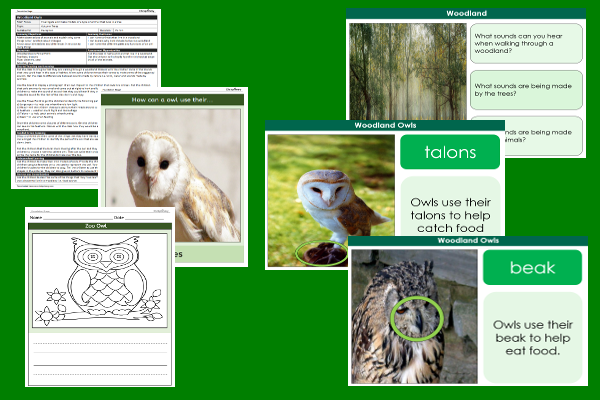Lesson Six – Woodland Owls

This curriculum topic teaching pack for the Foundation Stage gets the children to explore and make models using a range of materials showing a type of animal that lives in the trees found in a woodland habitat.
The class can name and describe how owls can use different parts of their body when hunting for food and living in different trees as part of a woodland habitat.
Download this teaching pack including a lesson plan, classroom activities and an interactive presentation to teach the children to explore and make models using a range of materials showing a type of animal that lives in the trees found in a woodland habitat
Activities in this teaching pack include display posters to learn and define key vocabulary words about a type of animal that lives in a woodland habitat and a template to make a collage picture of a woodland owl using a range of different materials.
The interactive presentation gets the children to name, locate and describe different parts of an owl and suggest how they can use a woodland habitat to search for and collect foods.
This lesson is part of a curriculum topic scheme of work to get the children to investigate changes to different trees during the autumn and explore how this affects animals that live in a woodland habitat including owls and squirrels. There are teaching activities for shared learning, differentiated worksheets to support independent learning and interactive presentations to introduce concepts and key skills.
-

School Friends
Investigate, describe and model some of the special ways of providing practical, spiritual and emotional support to other pupils in the school
-

School Pictograms
Explore how to count and record the numbers of different pieces of school equipment that can be found in trays stored around the classroom
-

Listening Skills
Develop and refine listening skills when practising how to follow commands and instructions when playing games and role-playing actions
-

Halving Things
Explain and model how to find and record the halves of some of the different objects that can be used at home and in school
